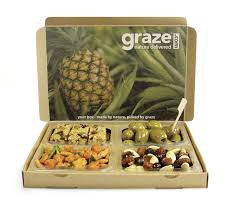记忆方法
记忆“graze”这个单词的方法是将它联想到“灰”色。想象一头牛或羊在草地上“graze”(吃草),它们的嘴巴和脸部的颜色因为长时间接触草地而变得“grey”(灰色)。这种方法通过视觉联想帮助记忆单词的意义。
以上内容由AI生成, 仅供参考和借鉴
中文词源
graze 放牧
来自grass, 草。字母s,z 音变。
英语词源
- graze
-
graze: [OE] There is no difficulty about the etymology of graze ‘feed on grass’: it was formed in Old English times as a derivative of the noun græs (modern English grass). But what about graze in the sense ‘scrape lightly’, first recorded in the 17th century? In the absence of any convincing alternative candidates, it is usually taken to be simply a special use of graze ‘feed on grass’, in the sense ‘remove grass close to the ground’, as some animals do in grazing – like a ‘close shave’, in fact.
=> grass - graze (v.1)
- "to feed on grass," Old English grasian, from græs "grass" (see grass). Compare Middle Dutch, Middle High German grasen, Dutch grazen, German grasen. Transitive sense from 1560s. Figurative use by 1570s. Related: Grazed; grazing.
- graze (v.2)
- "to touch lightly in passing," c. 1600, perhaps a transferred sense from graze (v.1) via a notion of cropping grass right down to the ground (compare German grasen "to feed on grass," used in military sense in reference to cannonballs that rebound off the ground). Related: Grazed; grazing. As a noun from 1690s, "an act of grazing."
权威例句
- 1. Five cows graze serenely around a massive oak.
- 5头奶牛在一棵大橡树旁悠闲自在地啃着青草。
- 2. Nothing serious. Just a graze.
- 没关系, 就破了一点皮.
- 3. There is good grassland here for your cattle and horses to graze on.
- 这里有很好的草地供你们放牧牛马.
- 4. A bullet from one of the pistols had graze his hip.
- 有一枝手枪里发出的一颗子弹擦伤了他的臀部.
- 5. The sheep usually graze in the grass land.
- 羊通常在草地吃草.
